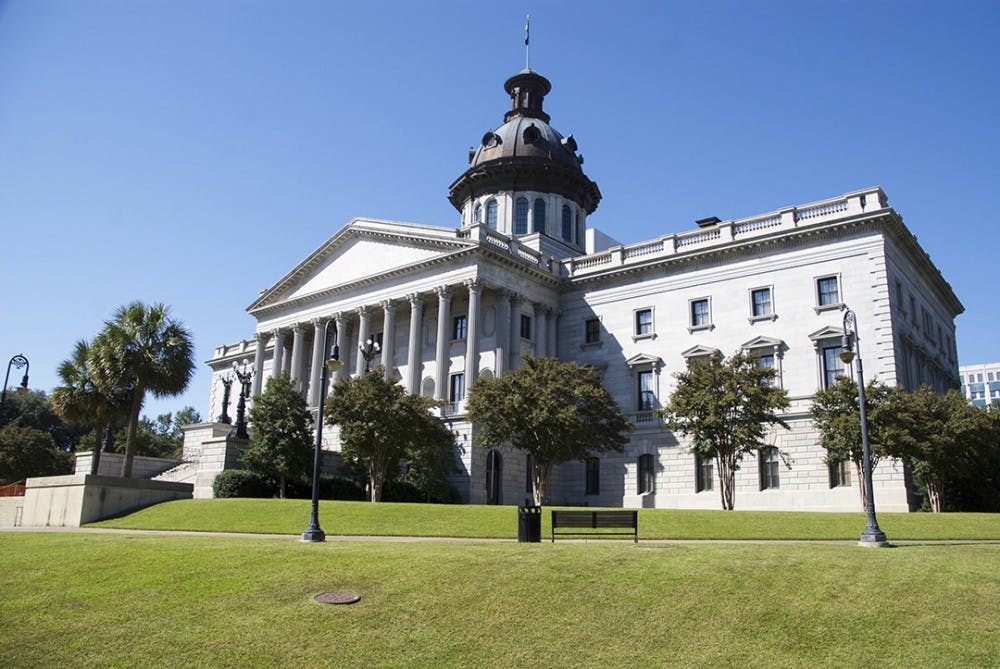When South Carolinians go to the polls to elect the lower house of next year’s state General Assembly, they will find their choices for candidates extremely limited.
Records compiled by Ballotpedia show that only a handful of incumbent state legislators face primary or major party opposition in their pursuit of one of 124 seats in the House this fall. A considerable majority of incumbents seeking re-election are the only candidates running for their district’s seat in the House, and several more face only primary opposition. Members of USC’s Department of Political Science attribute the rash of uncontested races to a number of factors, including a cynical but inactive electorate and name recognition enjoyed by incumbent officials.
The Ballotpedia report shows that 110 incumbent state representatives sought re-election for the 122nd South Carolina General Assembly and 106 won their party’s district primary. Of those 106, nearly three out of four did not face a party primary earlier this year nor will they face a major party opponent in the Nov. 8 general election.
Todd Shaw, associate professor and interim chair of the USC Department of Political Science, believes that single-candidate races run contrary to the most basic values of American government
Shaw said that the American sense of democracy requires competition.
“How do you hold incumbents accountable for their record if nobody’s challenging them on their record?” he said.
Shaw stated that he believes the General Assembly to be one of the “top five” least competitive state legislatures in the nation. This despite his own estimation that the Assembly affects the lives of South Carolinians more deeply than even the United States Congress in a number of fields.
Concerning the low percentage of incumbents who are elected out of office, Shaw and department colleague Bob Oldendick agreed that incumbency affords representatives an advantage in seeking re-election.
“You’re already in office, people know you,” Shaw said. “You have the ability, thus, to get your literature out.”
Oldendick, the director of USC’s Institute for Public Service and Policy Research , argued that first-time candidates, even those running for seats long held by opposing parties, should run specifically for name recognition.
“They build up their name recognition; people know that they are serious,” Oldendick said. However, he cautioned that using the mass media to advance a candidate’s recognition could be economically counteractive in S.C.’s more sparsely-populated districts.
“Your Senate district is just a very small part of a television station’s media area,” Oldendick said. “You’re spending a lot in terms of what it would cost to run TV ads … if you’re in Rick Quinn’s district in Lexington County, you’re doing that on WIS or any of the local stations, that’s going to Aiken County and just all over the state and you’re paying for that.”
Structural changes to state elections, Oldendick said, are necessary to remedy what he referred to as the “incumbency effect.” One concept Oldendick mentioned is a cap on the number of terms a single representative can spend in office. Currently, members of the S.C. House of Representatives are eligible for an unlimited number of two-year terms.
At the start of the 2016 state legislative session, the longest serving member of the House was Rep. Grady A. Brown (D-Kershaw, Lee and Sumter), who entered office in 1985. In March, The State reported that the incumbent Brown declined to seek re-election for a 17th term.
Despite public disillusionment with the state of the General Assembly, however, change in democratic government is a slow process.
Oldendick stated that, barring a major ethical scandal or loss of trust at the state level, “it's not going to change over the next few election cycles,” Oldendick said.
At the grassroots level, Shaw said that S.C. voters need to engage with their representatives if they want effective change to occur.
“When you’re cynical or critical, particularly in a system that’s not terribly competitive, a few voices can make a difference,” Shaw said.
Matt Moore, chairman of the South Carolina Republican Party, believes that an overlong legislative session coupled with low pay — the base salary is $10,400 — discourages many potential candidates from running.
“They often spend half the year away from their small businesses or jobs,” Moore said.
The 2016 state legislative session ran from Jan. 12 through Jun. 2. The Senate and House will reconvene for their respective 2017 sessions on Jan. 10.
Moore stated that he is in favor of shortening the sessions to permit officials time to work outside Columbia. He said he believes this will encourage more civilians to run for office, citing the Georgia General Assembly’s 40-working-day session as inspiration.

